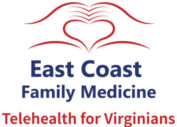As we embrace September, we also recognize Healthy Aging Month, a time dedicated to raising awareness about the importance of maintaining physical, mental, and emotional well-being as we grow older. At East Coast Family Medicine, we are committed to helping individuals and families prioritize their health through every stage of life.
Aging is inevitable, but how we age can be influenced by the lifestyle choices we make today. Family medicine providers play a critical role in guiding patients to make these choices and stay proactive about their health. Whether it’s through preventive care, screenings, or providing resources for managing chronic conditions, family doctors are key partners in the journey toward healthy aging.
What is Healthy Aging?
Healthy aging is more than just adding years to life—it’s about adding life to years. As people grow older, they face changes that can affect both physical and mental health. Healthy aging emphasizes the importance of staying active, mentally sharp, and socially engaged while managing chronic diseases and minimizing disability. It’s about maintaining independence and quality of life.
For many people, this includes a balanced approach to diet, exercise, mental health, and regular medical care. September is the perfect time to focus on these aspects and begin making small, sustainable changes that will have long-term benefits.

Key Areas of Healthy Aging
There are several factors that contribute to healthy aging. By addressing each of these areas, individuals can reduce their risk of common age-related conditions such as heart disease, diabetes, and dementia. Here’s a closer look at the key pillars of healthy aging and how family medicine providers can help:
1. Physical Activity and Mobility
Staying physically active is one of the most important things you can do for your health as you age. Regular exercise helps maintain muscle mass, improve cardiovascular health, and boost flexibility and balance. For older adults, incorporating moderate exercise such as walking, swimming, or yoga can prevent falls and other injuries.
Family medicine providers can tailor fitness recommendations based on your current health status and mobility. Many offer personalized exercise plans to suit individual needs, even for those managing chronic conditions like arthritis or osteoporosis.
2. Balanced Nutrition for Aging
Good nutrition is vital at every age, but especially as we get older. A diet rich in fruits, vegetables, lean proteins, and whole grains can help protect against chronic diseases. Reducing processed foods and focusing on nutrient-dense meals keeps the body fueled for optimal performance.
Family physicians often advise patients on how to adjust their diets to meet the changing needs of aging bodies. For example, older adults may need more calcium for bone health or more fiber to aid digestion. Some may also require dietary supplements or changes to manage conditions like high blood pressure or diabetes.
3. Mental Health and Cognitive Function
Cognitive health is just as important as physical health. Many people fear age-related cognitive decline, such as dementia or Alzheimer’s disease. However, there are steps that can be taken to maintain mental acuity and emotional well-being as you age.
Engaging in regular brain-stimulating activities like puzzles, reading, or learning new skills can slow cognitive decline. Staying socially active is also crucial for mental health. Family medicine providers can guide patients on strategies for staying mentally sharp and provide resources for mental health support if needed.
4. Preventive Screenings and Regular Check-Ups
Regular medical check-ups and preventive screenings become even more important as we age. These screenings can help detect conditions like hypertension, diabetes, and cancer in their early stages when they are more treatable.
During Healthy Aging Month, it’s an excellent time to schedule routine visits with your family physician. They will assess your current health, recommend screenings such as colonoscopies or mammograms, and help manage any chronic health concerns. Vaccinations, such as flu or pneumonia shots, are also critical for older adults to maintain their health.
5. Managing Chronic Conditions
Many adults face chronic conditions as they age, from heart disease to diabetes and arthritis. The key to healthy aging with these conditions is managing them well. This often involves a combination of medication, lifestyle changes, and regular monitoring.
At East Coast Family Medicine, we work closely with patients to manage chronic conditions, offering comprehensive care plans that include medication management, lifestyle recommendations, and regular follow-ups to ensure conditions remain under control.
6. Social Connections and Emotional Well-Being
Aging can sometimes lead to social isolation, which can negatively impact both mental and physical health. Staying socially engaged can boost mood, reduce the risk of depression, and improve overall well-being.
Family doctors can offer advice on community programs or activities that promote social interaction. Whether it’s joining a local club, volunteering, or participating in group exercises, staying connected to others is essential for healthy aging.
 Staying active and eating well are fundamental to aging well. Physical activity for older adults is crucial for mobility, while a balanced nutrition for aging adults protects against chronic diseases. Mental health in older adults is equally important, with activities that keep the mind sharp, and maintaining social connections and aging to boost emotional well-being. Managing chronic conditions with the support of family medicine providers can greatly enhance quality of life.
Staying active and eating well are fundamental to aging well. Physical activity for older adults is crucial for mobility, while a balanced nutrition for aging adults protects against chronic diseases. Mental health in older adults is equally important, with activities that keep the mind sharp, and maintaining social connections and aging to boost emotional well-being. Managing chronic conditions with the support of family medicine providers can greatly enhance quality of life.How Family Medicine Providers Support Healthy Aging
Family medicine providers are uniquely positioned to guide individuals through the aging process. They offer a holistic approach to care that covers every aspect of health—physical, mental, and emotional. Here are just a few ways family medicine providers support healthy aging:
- Comprehensive health assessments: Regular check-ups allow doctors to monitor your overall health and address concerns before they become serious issues.
- Customized care plans: Based on your health history, lifestyle, and needs, family doctors create personalized care plans designed to support long-term wellness.
- Chronic disease management: For those managing chronic conditions, family physicians offer ongoing support, adjusting treatment plans as needed and helping patients navigate the challenges of living with long-term health issues.
- Preventive care: From cancer screenings to blood pressure checks, preventive care is critical for catching potential problems early and improving outcomes.
- Patient education: Family doctors educate patients on healthy habits, the importance of regular exercise, proper nutrition, and strategies to maintain mental and emotional well-being.
Tips for Aging Well at Any Stage of Life
No matter your age, there are steps you can take to ensure a healthier future. Start by incorporating these simple, yet effective, habits into your daily routine:
- Stay active: Aim for at least 30 minutes of physical activity most days.
- Eat well: Focus on whole, unprocessed foods and stay hydrated.
- Keep your mind sharp: Engage in mentally stimulating activities like puzzles, reading, or learning new skills.
- Stay socially connected: Cultivate relationships and participate in social activities.
- Visit your doctor regularly: Schedule routine check-ups and screenings to stay on top of your health.

Conclusion
Healthy Aging Month is a reminder to focus on the steps you can take today to age well tomorrow. At East Coast Family Medicine, we’re here to support you at every stage of life, offering personalized care and resources to help you achieve optimal health as you age.
Remember, aging is not something to fear, but an opportunity to embrace new ways of living well. Stay proactive, take charge of your health, and partner with your family medicine provider to ensure a vibrant, healthy future.
For more tips and resources on healthy aging, schedule an appointment with one of our family doctors today!

